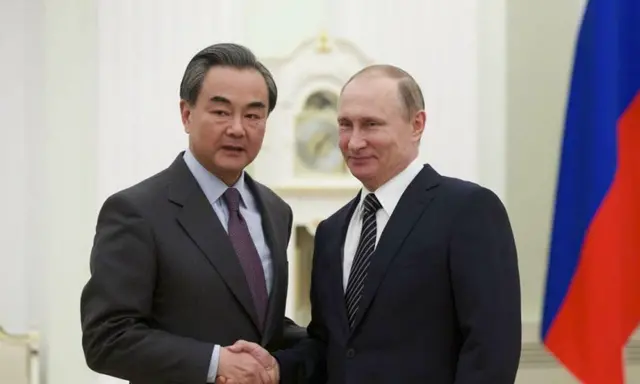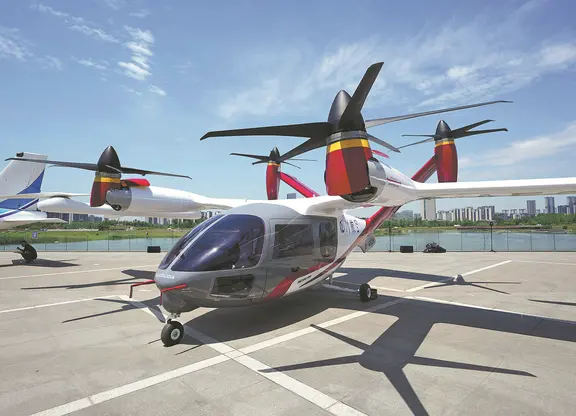A multibillion dollar high-speed rail deal between China and Russia is expected to be signed during Russian president Vladimir Putin’s visit to Beijing in late June, when the two nations are expected to extend military cooperation.
Official details of the trip have not been announced, but observers closely following the matter said up to 30 trade agreements could be signed.
China has recently confirmed plans to provide a 400 billion-rouble (HK$48 billion) loan to build a high-speed railway between the Russian cities of Moscow and Kazan.
In April, two Chinese state banks agreed to lend more than US$12 billion to develop a liquefied natural gas plant in the Russian Arctic, after more than a year of delays. Negotiations between the two sides were complicated by US sanctions against the project’s majority shareholder Novatek, which is partly-owned by Putin’s close ally and Russian billionaire Gennady Timchenko.
If implemented, the deal would make China the biggest consumer of Russian gas, importing 68 billion cubic metres annually.
The railway deal is expected to be signed, and the first batch of the loan for the gas deal is expected to be agreed upon during Putin’s upcoming visit, said Alexander Gabuev, a senior associate and the chair of the Russia in the Asia-Pacific Programme at the Carnegie Moscow Centre.
“China is a large market for commodities… [and] a source for capital, technology, and infrastructure. Russia has an abundance of mineral resources, which requires capital, technology, and infrastructure. That’s a natural match.”
The visit comes as Russia seeks to further advance ties with China to combat the effect of Western sanctions, while China is looking for Russia’s military support to counter US involvement in the Asia-Pacific region over disputes in the East and South China Seas.
The deployment of the Terminal High Altitude Area Defence (THAAD) missile system by the United States in the Korean Peninsula would further push the two nations to coordinate on the military front, analysts said.
In June, Chinese and Russian navies sailed into the disputed waters near the Diaoyu islands – known as the Senkakus in Japan – in the East China Sea at around the same time. Many believed this to be the first of the two countries’ joint operations in the East China Sea.
Moscow and Beijing held their first computer-aided missile defence drill in May, and China has purchased Russia’s cutting-edge S-400 surface-to-air missile system.
Gabuev said he saw an increasing pattern in which the two countries coordinate in response to common security threats.
Macau-based military observer Antony Wong Dong said as the two countries faced increasing pressure from the US, similar symbolic cooperation would become more frequent. But because of differences in military standards and underlying mistrust, the two countries had a long way to go before their cooperation was on the level of NATO or the US-Japanese alliance.
“The two countries’ anti-missile cooperation is more about exploring and understanding each other’s military capabilities at this stage. It is more of a protest against the US, rather than actual cooperation,” said Wong.
China and Russia have often tried to present a united front – from vetoing United Nations Security Council resolutions to taking a common stance in global affairs. In his trip to Beijing last September for a huge military parade commemorating the end of the second world war, Putin said Sino-Russian ties had “reached a peak in their entire history”.
In April, Russian Foreign Minister Sergey Lavrov said in April that Moscow was calling for the South China Sea disputes to be resolved directly between the countries involved, without any interference from third parties – echoing China’s position.
Russia did not take a stance on the legality of territorial claims by the claimants, said Anton Tsvetov, a researcher of Southeast Asia at the Russian International Affairs Council.
“Moscow does not ... articulate in this case whether it considers it legal for military ships to conduct reconnaissance in other states’ [Exclusive Economic Zones] without asking permission – which is one of the key US-China differences,” he said.
Wong, the Macau-based expert, questioned how far Russia could go in backing China over the disputes.
Russia has close ties with Vietnam, one of the claimant countries in the disputed waters, and cooperates militarily with India, Malaysia and Indonesia in the region. The country’s oil exploration project in the South China Sea also meant Russia could not side solely with China, said Wong.
(SOUTH CHINA MORNING POST)
 简体中文
简体中文













